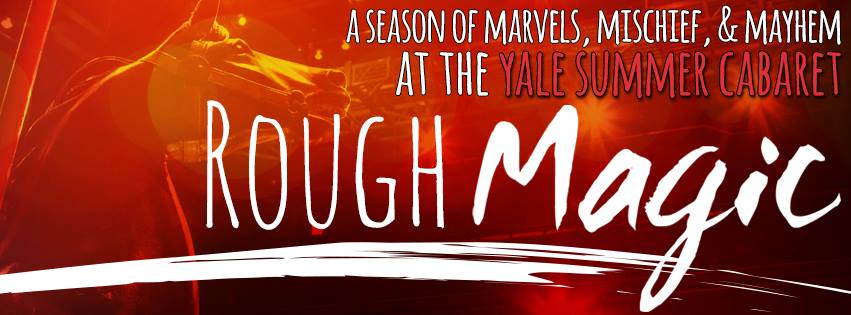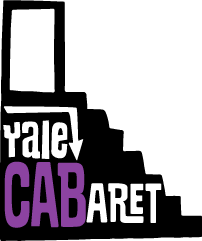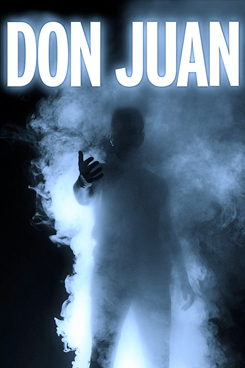Preview of Bus Stop, New Haven Theater Company
In the backroom of the English Building Markets, there’s a new diner. Or rather, an old diner. Dating from 1955, to be exact. It’s the set—still under construction—for New Haven Theater Company’s upcoming production of William Inge’s classic play of Americana, Bus Stop, and, boy, does it look authentic. Complete with the spinning stools you might remember from your favorite drugstore soda counter (if you remember those at all), a Beechnut Coffee tin, glass bottles of milk, a Frigidaire, and a radio that looks like it was around to broadcast on VE Day, Grace’s diner, where Bus Stop takes place during a freak blizzard in Kansas in March, has ambiance aplenty.
Director George Kulp expressed his deep gratitude to the Long Wharf Theatre, which generously opened its scenery and costume warehouses for the NHTC’s use. Which makes the show a dream come true for Kulp, who played headstrong cowboy Bo Decker in an exam play staged when he was still a theater student back in 1982. “The part was good to me and got me some attention,” Kulp said, and recently, when the process of picking plays for the NHTC season was taking longer than usual, “the play crossed my mind again.” The first thing Kulp realized was that he has the perfect assortment of actors for the play. Kulp asked his fellow NHTCers to read the play and casting fell into place immediately.
First of all, the play brings back Megan Chenot to the NHTC stage—last seen as the Stage Manager in their production of Our Town two years ago—who is taking time off from her busy performance schedule with her band Mission O. She plays Cherie, a small-time show-girl from the Ozarks and the female love interest of Bo, a cowboy trying to get her to marry him and move to Montana, played here by Trevor Williams who has the kind of youthful energy to pass for early twenties. The youngest part in the production—impressionable teen waitress Elma—goes to Sara Courtmanche, in her NHTC debut.
Other roles are filled by some of the familiar regulars in the NHTC family: Megan’s husband, Peter, a welcome addition to any NHTC show, whether as star or support, plays no-nonsense Sheriff Will Masters; J. Kevin Smith, who has had his share of plum roles with NHTC, as for instance in Glengarry Glen Ross and The Seafarer, plays Dr. Lyman, a pontificating ex-prof, who delights a bit too much in a nip from the bottle, among other vices; Erich Greene, often in the role of comic support, plays Carl, the Bus Driver, who has designs on Grace, the owner of the establishment, played forthright and down-homey by Kulp’s wife Susan (the Kulps played the Webbs in Our Town); John Watson gets the role of Bo’s crusty sidekick and father figure, Virgil.
Trevor Williams, Megan Chenot, John Watson, Sara Courtmanche, J. Kevin Smith, Peter Chenot, Susan Kulp, Erich Greene
“The play is better than I remembered,” Kulp said, and admitted that when he played Bo, “I was only focused on my role and really didn’t see how well the parts fit together. There are a lot of possibilities for us to explore, and a lot of discoveries to make about these characters. And we’re finding the humor.”
Bus Stop, set in a distinct place—a stretch of Kansas on the bus route to Kansas City—and period, is “a really good choice” for the Company, Kulp said. Indeed, NHTC has shown an affinity with classic American theater in its productions of Our Town and Waiting for Lefty. The pacing of naturalist drama suits the NHTC ensemble approach, with everyone contributing to the overall effect. The challenge here is that most of the cast is on stage at the same time, with different configurations taking up the main action. It requires a bit more orchestration than something like Almost, Maine, which the NHTC staged at English Markets in 2013, where the action was parceled out in discrete scenes. Kulp said he finds the challenge exciting, while fans of NHTC who have enjoyed some of their larger cast productions should be pleased by the overlapping interactions.
While Inge might not be a playwright on the tip of everyone’s tongue, there was a revival of his play Picnic on Broadway in 2013, and Kulp feels Bus Stop is just as good, if not better. “Both hail from a more innocent time we can be nostalgic about, but Inge is good at exposing the different layers of his characters.” And, as Smith says, his role, Dr. Lyman, excised from the Hollywood film version of the play (in which Marilyn Monroe played Cherie), lets us hear more of the kind of jaundiced views closer to Inge himself who didn’t set out to write venerable classics.
And what about a blizzard in March? Kulp said the special effects will be convincing, but let’s hope the play’s not prophetic in that regard.
The New Haven Theater Company’s production of Bus Stop opens Thursday, March 3rd and plays March 4th, 5th, 10th, 11th, 12th at 839 Chapel Street.





























